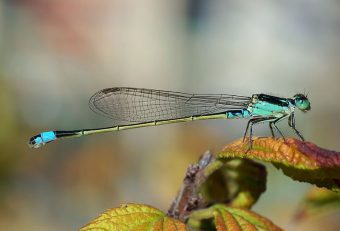
The destruction of wetlands is driving the decline of dragonflies worldwide, according to the first global assessment of these species in today’s update of the IUCN Red List of Threatened Species™. Their decline is symptomatic of the widespread loss of the marshes, swamps and free-flowing rivers they breed in, mostly driven by the expansion of unsustainable agriculture and urbanisation around the world.
With today’s update, the number of species at risk of extinction on the Red List has exceeded 40,000 for the first time. The IUCN Red List now includes 142,577 species of which 40,084 are threatened with extinction.
“By revealing the global loss of dragonflies, today’s Red List update underscores the urgent need to protect the world’s wetlands and the rich tapestry of life they harbour. Globally, these ecosystems are disappearing three times faster than forests,” said Dr Bruno Oberle, IUCN Director General. “Marshes and other wetlands may seem unproductive and inhospitable to humans, but in fact they provide us with essential services. They store carbon, give us clean water and food, protect us from floods, as well as offer habitats for one in ten of the world’s known species.”
More:
The assessment of the world’s dragonflies and damselflies reveals that 16 percent out of 6,016 species are at risk of extinction, as their freshwater breeding grounds increasingly deteriorate. In South and Southeast Asia, more than a quarter of all species are threatened, mostly due to the clearing of wetland and rainforest areas to make room for crops such as palm oil. In Central and South America, the major cause of dragonflies’ decline is the clearing of forests for residential and commercial construction. Pesticides, other pollutants and climate change are growing threats to species in every region of the world, and are the greatest threats to dragonflies in North America and Europe.
“Dragonflies are highly sensitive indicators of the state of freshwater ecosystems, and this first global assessment finally reveals the scale of their decline. It also provides an essential baseline we can use to measure the impact of conservation efforts,” said Dr Viola Clausnitzer, Co-chair of the IUCN SSC Dragonfly Specialist Group. “To conserve these beautiful insects, it is critical that governments, agriculture and industry consider the protection of wetland ecosystems in development projects, for example by protecting key habitats and dedicating space to urban wetlands.”
Source: IUCN



